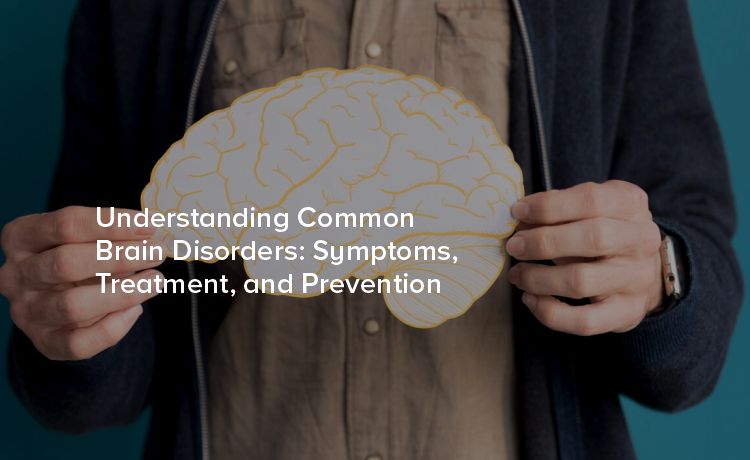
The brain is a fascinating and complex organ, responsible for everything from basic life functions to complex thought processes. However, it's also susceptible to a variety of disorders that can impact everyday life.
Understanding brain disorders is essential for several reasons. It helps in early diagnosis, effective treatment, and better management of these conditions. Brain disorders can affect anyone, regardless of age, gender, or background. The more aware you are, the better equipped you'll be to handle these challenges.
Brain disorders encompass a variety of conditions that affect the brain's normal functioning. These can range from genetic and developmental disorders to those caused by injury or disease. Understanding the different types of brain disorders can help you recognize symptoms early and seek appropriate treatment.
Cognitive Symptoms
Cognitive symptoms often manifest as memory loss, difficulty concentrating, or confusion. These symptoms can be mild initially but may progress over time, affecting daily activities and quality of life.
Emotional Symptoms
Emotional symptoms include mood swings, anxiety, and depression. These symptoms are often overlooked but can significantly impact an individual's well-being.
Physical Symptoms
Physical symptoms can range from headaches and dizziness to seizures and muscle weakness. Recognizing these symptoms early can lead to quicker diagnosis and treatment.
Alzheimer's Disease
Alzheimer's disease is a progressive disorder that affects memory and cognitive function. Early symptoms include forgetfulness and difficulty concentrating. As the disease progresses, it can lead to severe memory loss and inability to perform daily tasks.
Parkinson's Disease
Parkinson's disease primarily affects movement control. Symptoms include tremors, stiffness, and difficulty with balance and coordination. Early diagnosis and treatment can help manage symptoms effectively.
Multiple Sclerosis
Multiple sclerosis (MS) is an autoimmune disorder that affects the nervous system. Symptoms vary widely but often include fatigue, difficulty walking, and vision problems. Early treatment can slow the disease's progression and improve quality of life.
Diagnostic Tests
Diagnosis of brain disorders often involves a combination of medical history, physical exams, and specialized tests like MRI scans and blood tests. Early diagnosis is crucial for effective treatment.
Medication
Medications can help manage symptoms and slow the progression of many brain disorders. It's essential to follow your healthcare provider's advice for the best outcomes.
Therapy
Therapeutic interventions, including physical, occupational, and speech therapy, can significantly improve quality of life. These therapies help individuals regain lost skills and adapt to changes in their abilities.
Healthy Lifestyle Choices
Maintaining a healthy lifestyle is one of the best ways to prevent brain disorders. Regular exercise, a balanced diet, and adequate sleep can significantly impact brain health.
Mental Stimulation
Keeping your brain active through puzzles, reading, and other mentally stimulating activities can help maintain cognitive function and delay the onset of disorders like Alzheimer's.
Regular Check-Ups
Regular medical check-ups can help in early diagnosis and treatment of brain disorders. Don't ignore symptoms; consult a healthcare provider for timely intervention.
Coping Mechanisms
Living with a brain disorder can be challenging, but various coping mechanisms can help. Support groups, counseling, and stress management techniques can make a significant difference.
Family Support
Family support is crucial for individuals dealing with brain disorders. Family members can help with daily tasks, provide emotional support, and assist in managing treatment plans.
Technological Aids
Technological advancements have made it easier to manage brain disorders. Apps and devices can help with medication reminders, cognitive exercises, and even emergency alerts.
Advancements in Treatment
Ongoing research is crucial for developing new treatments and improving existing ones. Staying informed about the latest advancements can provide new hope for those affected by brain disorders.
Clinical Trials
Participating in clinical trials can offer access to cutting-edge treatments and contribute to scientific understanding. Consult your healthcare provider to explore available options.
Brain Disorders Are Rare
One common misconception is that brain disorders are rare. In reality, they affect millions of people worldwide and can impact anyone, regardless of age or background.
Only the Elderly Are Affected
While some brain disorders are more common in older adults, many can affect individuals of all ages. Early diagnosis and treatment are crucial for managing these conditions effectively.
There's No Hope for Recovery
Advancements in medical research and treatment options have made it possible to manage and even recover from many brain disorders. Staying informed and seeking timely intervention can make a significant difference.
Understanding common brain disorders, their symptoms, treatment options, and preventive measures is crucial for maintaining brain health. By staying informed and proactive, you can take significant steps towards a healthier, more fulfilling life. For further exploration and personalized advice, consider consulting a healthcare provider or joining a support group contact with best neurosurgeon in Hyderabad.
Read More: - Brain Health and Aging: Tips for Maintaining Cognitive Function